Related Research Articles
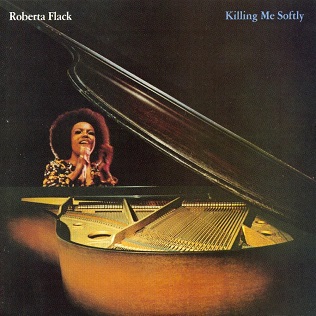
Killing Me Softly is a studio album by American singer-songwriter Roberta Flack, released on August 1, 1973, by Atlantic Records. She recorded the album with producer Joel Dorn for 18 months. The album was dedicated to Rahsaan Roland Kirk.

Live at The Gaslight 1962 is a live album including ten songs from early Bob Dylan performances recorded in October 1962 at The Gaslight Cafe in New York City's Greenwich Village. Released in 2005 by Columbia Records, it was originally distributed through an exclusive 18-month deal with Starbucks, after which it was released to the general retail market. The album release coincided with the release of the documentary No Direction Home: Bob Dylan.

Gerald Stenhouse Jemmott is an American bass guitarist. He was one of the chief session bassists of the late 1960s and early 1970s, working with many of the period's well-known soul, blues, and jazz artists. He has won two Grammy Awards.
"Talkin' New York" is the second song on Bob Dylan's eponymous first album, released in 1962. A talking blues, the song describes his feelings on arriving in New York City from Minnesota, his time playing coffee houses in Greenwich Village, and his life as a folksinger without a record deal. The lyrics express the apparent difficulty he had finding gigs as a result of his unique sound, with a character in the song telling Dylan: "You sound like a hillbilly; We want folk singers here."

The Midnight Special is a 1962 album by Jamaican-American singer, Harry Belafonte. The album notably contains the first officially-released recording by Bob Dylan, who plays harmonica on the title track. For many years the Belafonte session was thought to have been Dylan’s first professional recording, simply because this RCA Victor album was released first. However, in 2001, documentation was found in the RCA Victor vaults along with the session tapes which definitively dates the session as having been recorded at Webster Hall, New York City, in February 1962. This places it later than Dylan's recording session with folksinger Carolyn Hester, which dates from September 1961, also in New York City, although her album was not released until later in 1962.
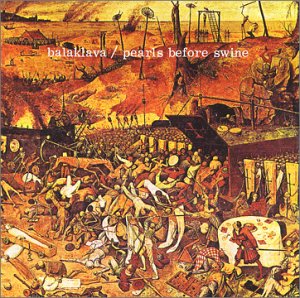
Balaklava was the second album recorded and released by psychedelic folk group Pearls Before Swine in 1968.

Fred Catero was an American record producer and engineer. Catero was originally from New York City, where he worked for CBS Records/Columbia, recording artists such as Chicago and Blood, Sweat & Tears. Invited by producer Roy Halee, Catero moved in the 1960s to San Francisco to work for Columbia Records there. In San Francisco, Catero worked on albums by Bob Dylan, Al Kooper, Tower of Power and Santana, many of these under producer David Rubinson at the Automatt. He also produced and engineered recordings with Aaron Copland, Janis Joplin, Linda Ronstadt and Mel Tormé. He also worked for the Automatt Studios, recording musicians such as Herbie Hancock and Santana.

These Things Too is the third album by American psychedelic folk group Pearls Before Swine, and their first for Reprise Records. It was released in 1969.

First Take is the debut studio album by the American singer Roberta Flack. It was released on June 20, 1969, by Atlantic Records. In the 2020 edition of Rolling Stone's 500 Greatest Albums of All Time list, the album was ranked 451st.
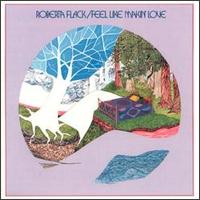
Feel Like Makin' Love is the fifth studio album by American singer Roberta Flack. It was released by Atlantic Records in March 1975 in the United States. Recorded after the release of her duet album with Donny Hathaway, Roberta Flack & Donny Hathaway (1972), it marked the singer's first album to be produced by Flack herself, under the pseudonym Rubina Flake.
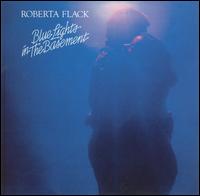
Blue Lights in the Basement is the sixth studio album by American singer Roberta Flack, released by Atlantic Records on December 13, 1977. A commercial success, it peaked at number eight on the US Billboard 200, becoming her third top-ten album on the chart, while also reaching number five on the R&B albums chart. In February 1978, it was certified Gold by the Recording Industry Association of America (RIAA) for shipments over 500,000 copies.
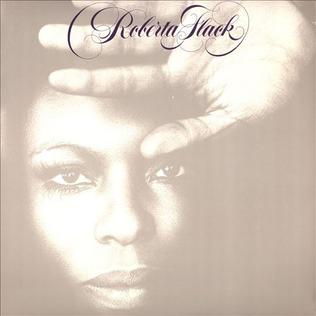
Roberta Flack is a 1978 studio album by American singer Roberta Flack. Her eighth album release, including her 1972 Donny Hathaway collaboration, Roberta Flack was the parent album of the Adult Contemporary number one hit "If Ever I See You Again" which also ranked in the Top 40.
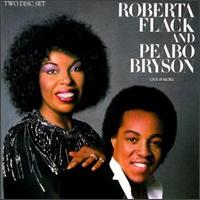
Live & More is a two-disc live album between Roberta Flack and Peabo Bryson.

Oasis is Roberta Flack's first solo album of newly recorded songs since 1982's I'm the One. Released 1 November 1988, Oasis features the number-one U.S. singles, "Oasis" (R&B), and "Uh-uh Ooh-ooh Look Out ".

Set the Night to Music is a studio album released by American singer Roberta Flack, released by Atlantic Records on September 17, 1991 in the United States.

Born to Love is a 1983 studio album of duets by American singers Peabo Bryson and Roberta Flack. It was released by Bryson's label Capitol Records on July 22, 1983, in the United States. The album yielded the hit single "Tonight, I Celebrate My Love", written by Gerry Goffin and Michael Masser. The track "Maybe" was written and recorded for the film Romantic Comedy (1983).

Roberta is Roberta Flack's fourteenth album, released in 1994. It consists of cover versions of jazz and soul standards. It was also her final album for Atlantic Records after twenty five years with the label since her debut. As an album Roberta was bestowed with a Grammy nomination in the category of Best Traditional Pop Vocal Performance.
Arthur Eugene Jenkins, Jr. was an American keyboardist, composer, arranger and percussionist who worked with many popular music icons such as John Lennon, Harry Belafonte, Bob Marley and Chaka Khan.

Blue Rock Studio was an independent 16- and 24-track recording facility located in Manhattan's SoHo district. Founded by owner Eddie Korvin, it opened in 1970 and was sold in 1986.
Donal Richard Leace was an American musician and educator.
References
- 1 2 3 4 Biography by Sean Westergaard, AllMusic.com. Retrieved January 20, 2019
- 1 2 3 4 Larry Crane, Coke Ennyday, Alex Stimmel, "Richard Alderson: 60's Free Jazz, Dylan's 'Electric' Tour, & More", TapeOp.com, July/August 2011. Retrieved January 20, 2019
- ↑ Jay Jay French, "Record producer remembers The Beatles relationship with Bob Dylan", Goldmine, June 18, 2018. Retrieved January 20, 2019